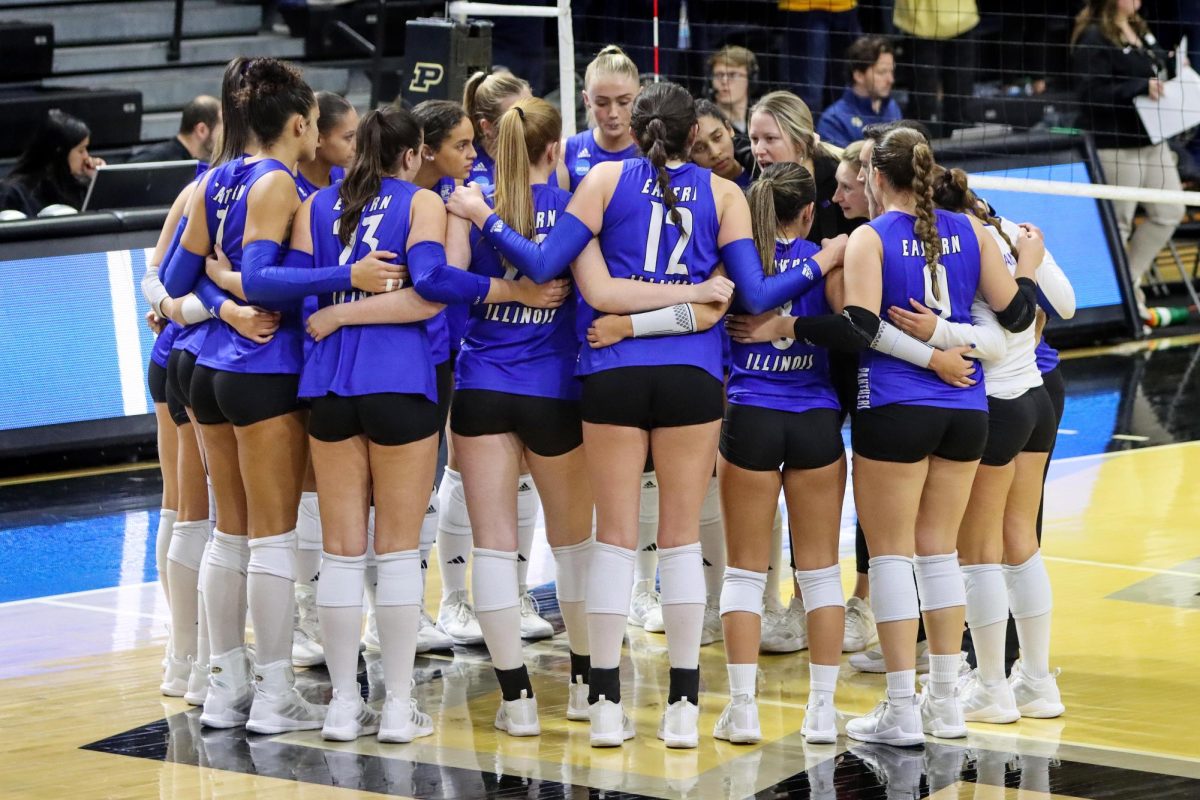On Tuesday Feb. 20, the National College Athletic Association released a set of rules regarding collegiate volleyball:
- Referees are now allowed to issue red cards to the home team in cases where spectators get too close to the play area and the home team does nothing to resolve the issue
- Interference above the net can now be challenged
- All protests against referee decisions must now be resolved during the match
- Small, snug-fitting nose rings and ear cuffs have been added to the list of acceptable jewelry that can be worn during a match
- Each team is now allowed to designate two liberos for each set of the match. Only one libero would be allowed on the court at a time, and the libero would be allowed to serve in one position
And finally, a rule that has brought lots of controversy:
- Players may now contact the ball more than once on any single attempt on a team’s second contact so long as the ball is played to a teammate
What exactly is a double contact?
Double contact is called when the setter sets the ball with their hands separately instead of simultaneously.
Setting is an art. It is a skill that takes years to master.
The NCAA claims that introducing this rule will “bring more consistency to the game” and “promote continuation of play, which would make the game more entertaining for the players and fans.”
There is widespread controversy about the impact this will have on the importance of the setter.
However, what is failed to recognize is that this new rule does not take away from the skills of a setter. A setter still needs to be able to properly deliver and execute their set.
An argument against the new rule that many make is that it will make the game sloppy. Yet, lifts and other violations can still be called.
A skilled setter will still be an excellent setter; the rule does not change that. To execute a good hit or kill, the sets still need to be clean.
Growing up, I played volleyball practically my whole life, and one of the most frustrating parts of the game was when the rally would end early.
Why would this happen? Because a double was called.
Doubles are hard to spot and sometimes falsely called. An amazing kill would be diminished and instead, a double was called on the set and the point was turned over to the other team.
If anything, the rule of no double hits helps the flow of the game.
Panther junior setter Sylvia Hasz does not mind the change either, agreeing how devastating a double call can be.
“I don’t mind the new rule change,” Hasz said. “I think it keeps the flow of play going, and prior to the new rule, it has been disappointing during long rallies when the play has ended because of a double contact instead of a kill.”
Like stated earlier, it does not diminish Hasz’s skills.
“Being a setter, I’m not upset by this rule because yes now anyone can set the ball, but not everyone can be a setter,” Hasz said. “There’s a lot more of [a] strategy and decision making that goes into being a setter and not just setting a ball. So, in some ways it helps make our job easier to do.”
Chloe Proffitt can be reached at 581-2812 or at cgproffitt@eiu.edu.


















![[Thumbnail Edition] Senior Foward Macy McGlone, getsw the ball and gets the point during the first half of the game aginst Western Illinois University,, Eastern Illinois University Lost to Western Illinois University Thursday March 6 20205, 78-75 EIU lost making it the end of their season](https://www.dailyeasternnews.com/wp-content/uploads/2025/03/WBB_OVC_03_O-1-e1743361637111-1200x614.jpg)














































